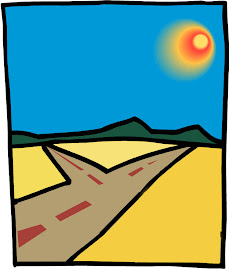
John 8:12-20 12 When Jesus spoke again to the people, he said, “I am the light of the world. Whoever follows me will never walk in darkness, but will have the light of life.” 13 The Pharisees challenged him, “Here you are, appearing as your own witness; your testimony is not valid.” 14 Jesus answered, “Even if I testify on my own behalf, my testimony is valid, for I know where I came from and where I am going. But you have no idea where I come from or where I am going. 15 You judge by human standards; I pass judgment on no one. 16 But if I do judge, my decisions are true, because I am not alone. I stand with the Father, who sent me. 17 In your own Law it is written that the testimony of two witnesses is true. 18 I am one who testifies for myself; my other witness is the Father, who sent me.” 19 Then they asked him, “Where is your father?” “You do not know me or my Father,” Jesus replied. “If you knew me, you would know my Father also.” 20 He spoke these words while teaching in the temple courts near the place where the offerings were put. Yet no one seized him, because his hour had not yet come.
***
In the Book of Genesis, God’s first act of creation is to utter the words: “Let there be light.” And in that moment, Scripture says, light broke forth, manifesting to a newborn world the limitless imagination and profound power of our Creator. At the outset of the Gospel of John, Jesus is compared to an inextinguishable light that shined in the midst of immense darkness. And in the passage above, Jesus describes himself as such, saying, “I am the light of the world.” But that’s not all! As usual, Jesus doesn’t just want to tell us about himself or his mission, he wants us to join with him and to share in his life by conforming our own to his teaching and example: “Whoever follows me will never walk in darkness, but will have the light of life.” I can’t help but think about how profound a connection this is—that light is the first sign of God’s presence at the start of Scripture, and is now what Jesus calls himself and promises to all those who will follow him. Surely, this deeply symbolic and hopeful connection from ancient times to Jesus’ own time would have been appreciated and celebrated by his own people, right? Well, not exactly. As we read in the passage, the Pharisees’ preoccupation over whether Jesus’ testimony about himself can be validated without being seconded leads Jesus to rebuke them more than once: “You have no idea where I come from,” says Jesus, and “You do not know me or my father.” Clearly, the Pharisees are in the dark about who Jesus is and what he’s about. So what about you and me? Are we like the Pharisees? After all, they were folks who went to church, tried to follow the rules, and took God’s word seriously. And yet, according to Jesus in this passage, they didn’t even know his Father, the God of Israel, the God the Pharisees thought felt they knew better than most. Even though I do my best to make it to Eucharist every Sunday and obey the law of the land, do I know Jesus when I see him? Do I allow myself to get close enough to people around me who are sick, suffering, vulnerable, or unfairly judged? Because, as Jesus teaches us elsewhere in the gospels, this isn’t only where he is in our own times, but it’s who he is—he is with and he is in the least of our brothers and sisters. As our Lenten journey continues, may we pray each and every day to grow in the knowledge of Jesus. To be able to recognize him in our world, respond to him, and in so doing, come to better know him. Perhaps we’ll decide to commit to a particular work of outreach ministry we’ve been thinking about for awhile. Maybe there’s a coworker whose trials and tribulations could use a more responsive or sympathetic ear. Or is there someone we’ve hurt who deserves a sincere apology? In these ways, by drawing near to others who call out of us charity, mercy, or humility, we meet Jesus where he is, and then we can come to truly know him. And in knowing him, we follow him. And by following him, we come to share in the radiance of that approaching Easter light—light which penetrated the darkness at the dawn of creation…light which came into the world through Jesus and could not be snuffed out…light which brightens the human spirit when we can encounter Jesus in others, and allow him to be encountered in ourselves.

No comments:
Post a Comment